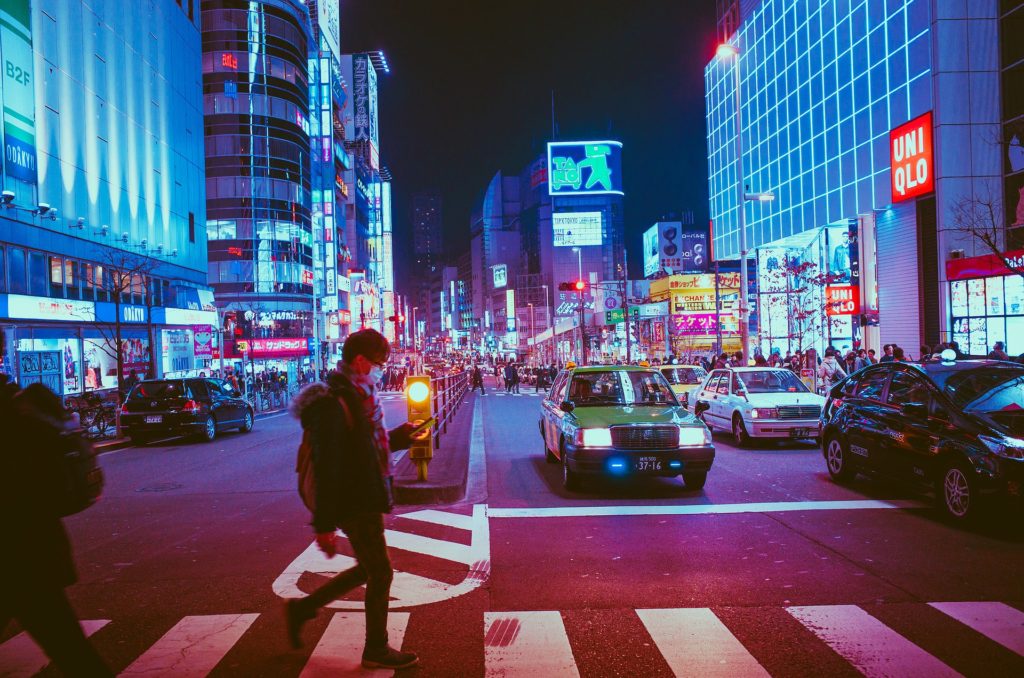
It has been three months since Japan ended the state of emergency declared in response to the novel coronavirus. The island nation says it fought off COVID-19 by using a unique strategy. Clusters of infections were identified, and a method dubbed the “Three Cs” was instituted across Japan. Citizens were urged to avoid closed spaces, crowds, and close-contact with others. “With this unique Japanese approach, we were able to control this trend in just 1.5 months,” Prime Minister Shinzo Abe said in May. “I think this has shown the power of the Japanese model.”
The country is now coming under criticism for opening too soon, however, as numbers have spiked over the summer. Johns Hopkins data shows there have been 28,000 new cases in August alone, taking the nation’s case total to more than 64,000. Some public health experts believe the spike was inevitable because communities were encouraged to operate as normal before it was safe. “This is the result of the government prioritizing economic activity — by getting people to move around again — over infection control,” Yoshihito Niki, a professor of infectious diseases at Showa University’s School of Medicine told Bloomberg this week.
News media reports are now noting that there is an element of uncharacteristic defiance amongst the Japanese population who are exhibiting ‘lockdown fatigue,’ and resentment against authorities for not doing enough to manage the outbreak. Interestingly, unlike many other countries, the Japanese government does not have any authority to enforce a lockdown on its citizens. In April and May when the country effectively ‘locked down,’ authorities instead relied on the ‘Three Cs’ and the cooperation of the Japanese people to do the right thing. It begs the question, why were 126-million people compelled to stay at home, without being mandated to?
One answer lies in the cultural norms of Japan. It is known to be a collectivist culture — whereby citizens have a strong sense of community and care for the welfare of one another. Hofstede’s Dimensions is a tool used by academics to measure the degree of individualism or collectivism in societies. “Certainly, Japanese society shows many of the characteristics of a collectivistic society: such as putting harmony of the group above the expression of individual opinions and people have a strong sense of shame for losing face,” reads the Hofstede’s Dimensions website.
Another factor that likely plays a part in national cooperation, is the Japanese preference to avoid uncertainty. A pandemic ravaging the globe raises significant unknown variables, and rather than risk the unknown, Japanese citizens chose the safer route of staying home. “At 92 Japan is one of the most uncertainty avoiding countries on earth,” Hofstede states. “You could say that in Japan anything you do is prescribed for maximum predictability. From cradle to grave, life is highly ritualized and you have a lot of ceremonies. At weddings, funerals, and other important social events, what people wear, and how people should behave are prescribed in great detail in etiquette books. School teachers and public servants are reluctant to do things without precedence.”
It is also important to ‘save face’ in the Japanese culture, a tendency that has led some critics to question whether Japan’s public health officials have operated in the publics’ best interest. There has also been speculation that the death count — just 1,230 people to date — may not be accurate. On paper, Japan seems particularly susceptible to the virus, as the population lives in very high-density cities and commutes on notoriously packed trains. Also placing the nation at particular risk is the prevalence of the virus to harm people of advanced age. Japan has more elderly people than any other country on earth.
Despite these concerns, it is business as usual for the Japanese government. While COVID-19 case numbers continue to climb, Japan is pushing domestic tourism through a national ‘Go To Travel’ initiative designed to get citizens to leave their hometowns and spend money. The CDC is still reporting that the risk of COVID-19 is high and advises against traveling there. Chief Cabinet Secretary Yoshihide Suga, touted as the successor to current Prime Minister Shinzo Abe, has other ideas. “We want to avoid another state of emergency that could have a big negative impact on the economy,” Suga told Reuters this week. “Japan will do whatever it takes to host the Tokyo Olympic Games next year,” he added.

I loved as much as you’ll receive carried out right here.The sketch is attractive, your authored subjectmatter stylish. nonetheless, you command get bought an edginess over thatyou wish be delivering the following. unwell unquestionably come more formerly again as exactlythe same nearly a lot often inside case you shield this increase.